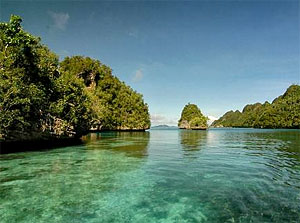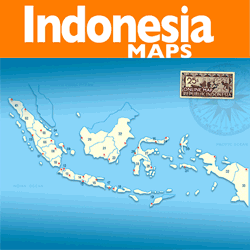The Entrance Fee

The Raja Ampat Regency Government is proud to announce the introduction of a tourism entrance fee system to help support the conservation and community projects within Raja Ampat tourism. To all tourists that entering Raja Ampat are required to purchase an entrance tag.
The entrance fee for foreign visitors is Rp 500,000/person/calender year (approximately US$55) for which they will receive a waterproof plastic entrance tag featuring a photo from Raja Ampat.
For all Indonesian visitors from outside Raja Ampat are required to pay Rp 250,000 and will receive an entry card. The annual tags and cards will be valid from January 1st until January 31st of the following year.
This tag system has been adapted from the very successful Bonaire and Bunaken Marine Park systems. The visitors are required to carry their tags or cards at all times, these tags can be easily fixed to guests’ snorkeling or diving gear or to their dive bag. The entrance fee system will be enforced through spot checks conducted by official patrols. The money collected is managed by a multi-stake-holder management team (Tim Pengelola) and it is divided between tourism development, conservation, and community health projects.
For the visitor who want to purchase the entrance tag can directly go to the dive operator on diving spot, or go to the Raja Ampat entrance fee management team which has established a booth at the Sorong Airport during the arriving guests and purchase the tags.
At this time, payment must be in rupiah, though they will endeavor to expand this to at least US$ and Euro in the future. In this case, the guest buys the tag and the receipts are filled in with the following information: guest name, country of origin, tag number, passport number, and email address (optional if the guest would like to receive further information about Raja Ampat conservation efforts). To ensure accountability the guest receives their copy of the 2 receipts, the accompanying dive operator representative receives their copy, and the management team’s copy is directly entered into the guest database.

Learn to Cook Papeda at Weriagar District, West Papua
Weriagar is a district located in Teluk Bintuni Regency, West Papua Province, Indonesia. The staple food of the local Weriagar community is Papeda. Papeda is made from sago cooked in boiling water on a stove until the dough looks like glue. Papeda is delicious eaten with fish in soup. Sayur bunga pepaya (papaya flower bud vegetables) and tumis kangkung (stir-fried water spinach) are often served as side-dish vegetables to accompany papeda. On some coasts and lowlands on Papua, sago is the main ingredient to all the foods. Sagu bakar, sagu…
Tanjung Kasuari, Sorong
Tanjung Kasuari beach is located in Sorong city, West Papua. This tourism object is becomes one of the most visited tourism objects in Sorong and it has been visited almost everyday. It located around 7Km from down town of Sorong city, and it can be reach by using private vehicle or public transportation. The nuance in this beach is windy and it has white sandy path along the beach, the clear water and coconut trees along the area. It so refreshing and tropical alike. Moreover, the visitors can enjoy the sunset…
Nusrowi Island, The Exotic One On West Papua
Nusrowi Island is located on the west of Rumberpon island, Wondama Bay district. This small island has an area of ??approximately 4 hectares and surrounded by shallow waters and filled with coral reefs and many species of ornamental fish. You can also see other marine commodities like grouper, sea cucumbers and lobsters. In this place you can do your favorite activities such as diving, coral reef observations and fishing; to get to this place from Ransiki to a location, we can use a longboat which takes about 1.5 hours. www.Indonesia-Tourism.com
Amazingly Fak Fak
Fak Fak This district is famous for the agriculture plant of nutmeg, which make this city known as “Kota Pala” or the city of nutmeg. Fakfak regency is one of the oldest cities in Papua, with a high civilization. Historically Fakfak was a significant port town, being one of the few Papuan towns that had relations with the Sultanate of Ternate, being bound to it. The Sultanate later granted the Dutch colonial government permission to settle in Papua, including in Fakfak. The Dutch began the settlement in 1898. The town…









